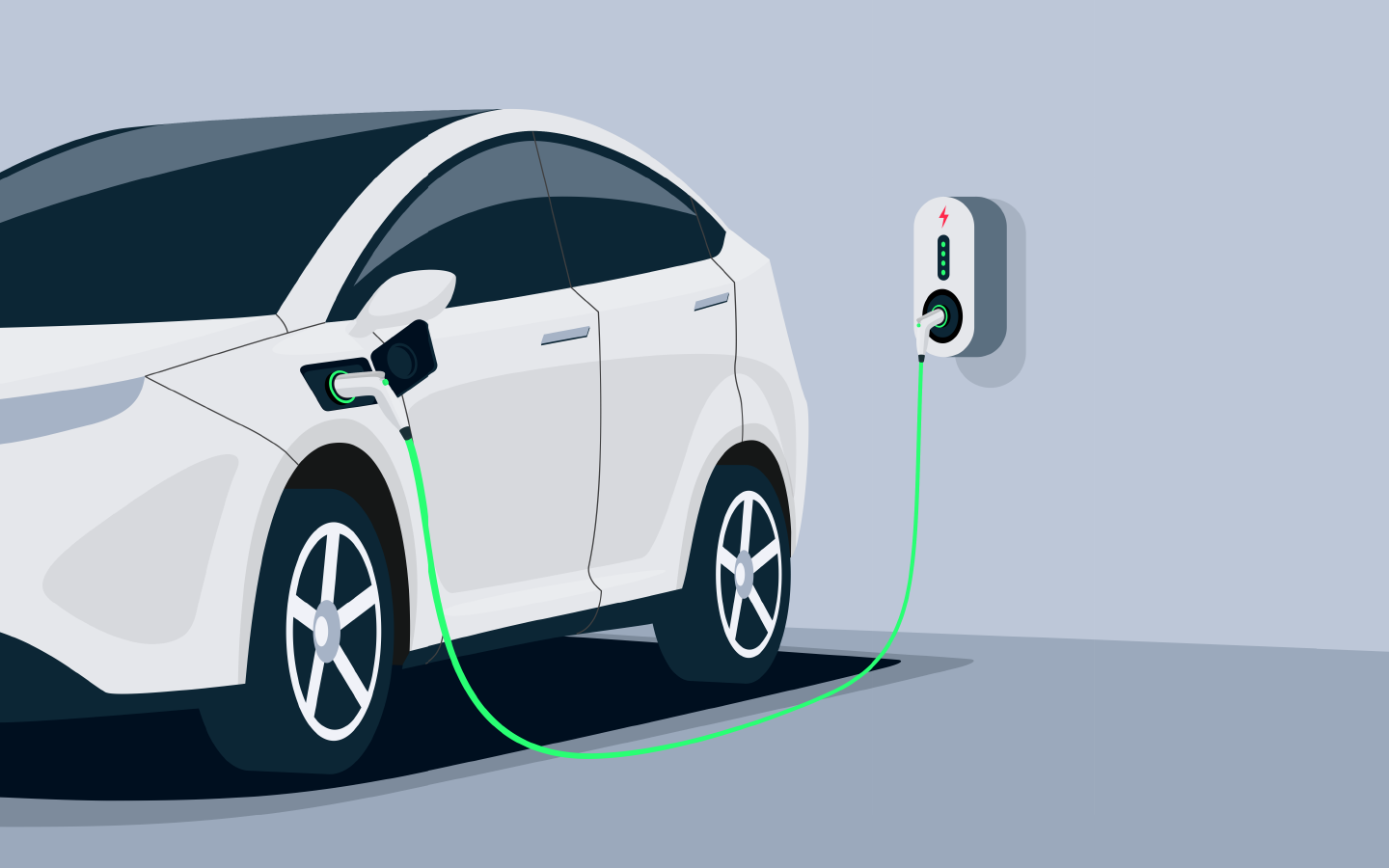- In-car connected services and accurate parking and charging data are on the rise according to the 2023 Global Driver Survey
- It was reported that 92% of global respondents had difficulty finding parking spaces, while 18% of US drivers had trouble finding parking every time they looked, along with a widespread underuse of connected services.
- 92% of US EV drivers are anxious about finding charging away from home, according to a survey.
The survey, conducted in May 2023, collected motorists’ views on the problems they face during journeys and across connected services such as parking, charging, and in-car commerce.
According to the 2023 Global Driver Survey, recently completed by award-winning market research company, Borderless Access, motorists from all corners of the globe are pleading for more parking and EV charging features in cars. The responses obtained from a total of 5454 drivers, including 2225 electric vehicle owners, demonstrated that most experience difficulties when looking for parking and EV charging spots; they would appreciate having convenient ways to find available locations and pay for them through their car.
Global parking struggles highlighted by motorists
Locating a parking space is a widespread issue, with 92% saying it’s tough and 8% having difficulty every single time. The lack of utilisation of connected services was evident. When looking at US motorists, 18% have difficulty each time; however, this varies state by state – 58% in New York, 47% in California, 46% in Texas and 23% in Ohio all report regular issues.
Nearly half of global respondents rate parking information as highly important, with 67% of American drivers and 72% of US EV owners falling into this category. At the same time, only a small number consider it unimportant; in the US this figure is even lower. Subsequently, integration of parking services within vehicles has a high appeal for many survey participants – 77% globally, and 91% amongst US EV owners.
Drivers demand better EV charging services
The same proportion of drivers worldwide wanted their vehicles to assist with finding parking, but they also wanted them to assist with charging EVs and facilitating in-car payments. While charging anxiety is well known among electric vehicle drivers, the latest Global Driver Survey highlights just how significant the issue is, both for automakers trying to increase the uptake of electric cars, as well as for drivers themselves who worry about charging in public.
91% of EV drivers in Europe and 92% in the US feel anxious about finding a place to charge away from home.
A quarter of EV drivers report running out of charge and 22% have found themselves stranded more than once due to charging anxiety. Nearly half of EV owners in the US run out of charge and one quarter end up short of their destination multiple times due to a flat battery. The number of European motorists who have run out of charge more than once is one in five.
This problem is compounded by 92% of EV drivers worldwide who struggle to locate charging stations away from home, with 22% reporting this to be a very frequent or constant issue. For American EV drivers, this figure jumps to 35%, highlighting the importance of technology to assist drivers in finding charging stations that meet their needs.
EV drivers in the US fail to find specific charging points at least once a month, with 22% reporting that this is an issue every week, demonstrating the scale of the problem. It is estimated that nearly half of EV drivers have encountered occupied or “out-of-order” chargers while trying to plug in their vehicles. Around one-third of drivers in both countries also have trouble physically accessing chargers, a particular problem in the US and Germany.
Unexpected parking fines hit a large proportion of EV drivers
Moreover, respondents indicated that finding parking is an issue in many countries, and they also wanted more accurate parking information. Nearly one in five drivers in the US reported difficulty finding parking on every trip.
Charging an electric car can be a stressful and sometimes costly process for many EV drivers. A survey revealed that an alarming 58% of EV owners around the world have received unexpected parking fines while trying to power up, with US drivers being particularly vulnerable at 68%. This indicates the need for clearer and more accurate information to avoid such issues. EV owners also expressed a greater need for parking information compared to drivers of petrol and diesel vehicles – no doubt due to the longer stay times and higher risks of fines they face when charging.
More than half of EV drivers who have received parking fines while charging believe that more accurate information could have prevented them from getting fined, with 39% citing in-car payments as the most requested solution to this problem – thanks to the benefit of paying for parking and charging simultaneously at the same time.
Drivers’ choice of next vehicle is heavily influenced by the quality of connected car services
Half of American electric vehicle drivers have run out of charge at least once, and a quarter have experienced it multiple times. Consequently, US motorists have a particular interest in in-car payments to simplify the payment process when they do manage to find a suitable charger.
EV owners in the US, including 91%, would prefer to have a vehicle with the capability of finding public charging stations and navigating directly to them. In the survey data, these features are no longer regarded as ‘nice-to-haves’, but rather essentials that influence future vehicle choice.
Globally, nearly 9 out of 10 respondents say they would buy an electric vehicle if it had ‘Park and Charge’ functionality, allowing them to locate chargers, get associated parking information, navigate directly to these and pay for charging (and parking), all through their vehicle’s media system. There is less anxiety about buying an electric car for 92% of current US petrol and diesel car owners.
96% of existing EV drivers say combined Park and Charge features would make them more likely to purchase another EV. In-car activations and charging payments are also valued by 84% of EV owners.
The demand for in-car commerce continues to grow
In-car commerce is continuing to grow rapidly, with vehicles now allowing drivers to pay for services like parking, EV charging, tolls and food directly. A survey found that 60% of global respondents regard vehicle-centric in-car payments highly and 48% want Single Sign-On access across providers, which means they could use one account to use services from many providers. US drivers have the greatest desire for these features, with a massive 70% desiring vehicle-centric in-car commerce and 61% favouring Single Sign-On.
When looking into the most desired in-car services, 64% of global participants expressed that they would be keen to have payment options for parking, with American drivers being particularly interested at 68%. Furthermore, current EV owners were found to have a strong interest in utilizing in-car payment for charging, with 75% of global and 81% of US drivers wanting this feature. Additionally, double the amount of respondents chose vehicle-centric features rather than food orders when it came to making payments from their cars.
Commenting on the survey results, Eugene Tsyrklevich, Founder and CEO of Parkopedia, said: “We know that finding parking and charging can be challenging in many countries, however, we were surprised by the consistency, scale and breadth of the problems reported by motorists around the world in our latest survey. This highlights the importance of automakers addressing these concerns directly and providing accurate data and the most desired connected services.
“Currently, locating parking and charging is not only an inconvenience, but a significant stress and cause for anxiety for many drivers, with surprisingly high numbers of EV drivers reporting running out of charge and being stung with parking fines when they do manage to find a charger. With today’s connected vehicles, we believe that these situations can, and should be avoided, by providing trustworthy and accurate data and services to drivers, so if desired, they are able to successfully transition to EVs, or at least complete their journeys with ease.”
Pre-register to receive a copy of the complete 2023 Global Driver Survey report.






